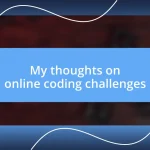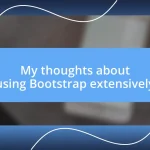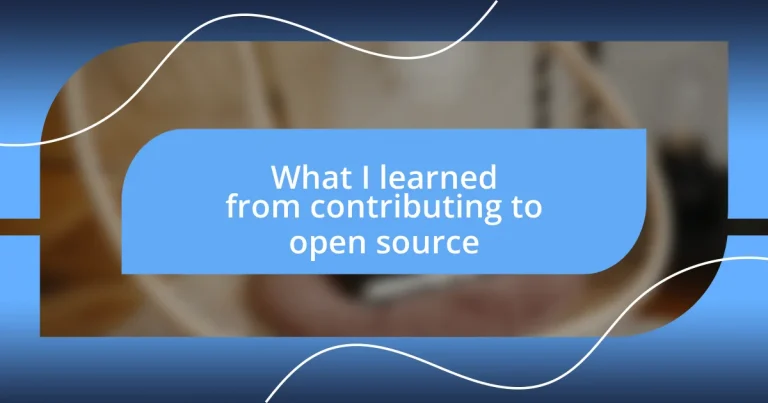Key takeaways:
- Open source projects foster collaboration, learning, and community-building among developers from diverse backgrounds.
- Working in teams enhances coding skills through real-time feedback, mentorship opportunities, and shared knowledge.
- Participating in real-world projects teaches the importance of adaptability, effective communication, and the user’s voice in driving technical decisions.
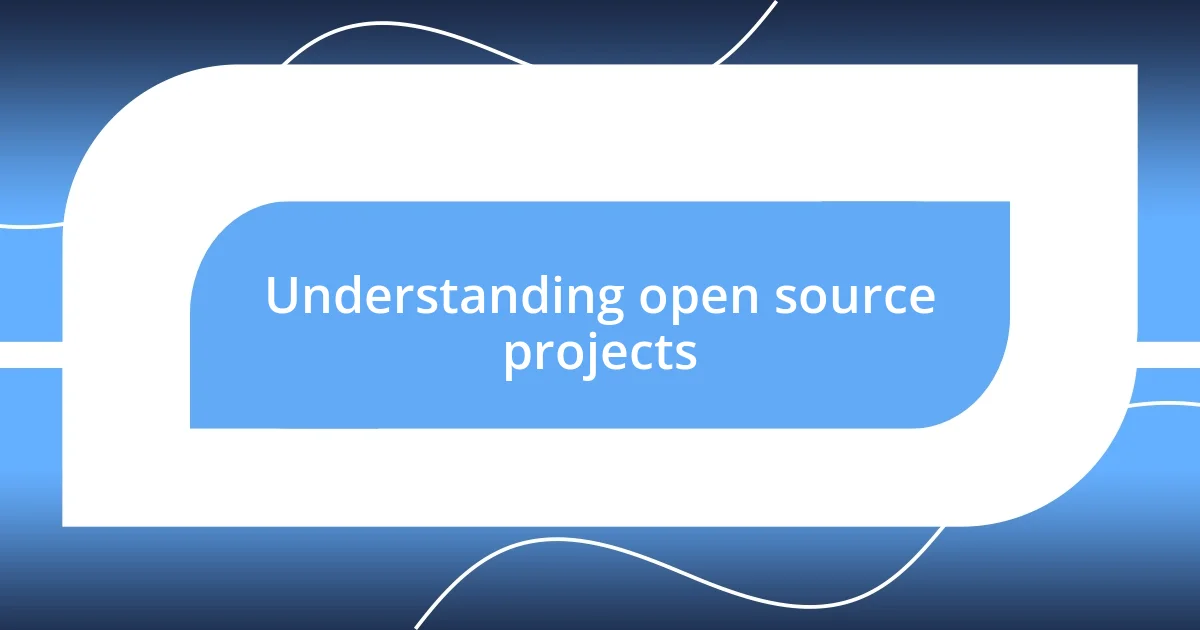
Understanding open source projects
Open source projects are collaborative endeavors where developers from around the globe come together to build software that is freely available for anyone to use and modify. I remember my first time diving into one—I was both excited and nervous. It felt like stepping into a vast ocean of creativity and talent, where I could contribute, learn, and belong.
What struck me most was the community aspect of open source. I realized that it’s not just about coding; it’s about connecting with others who share similar interests. Have you ever joined a group where everyone is eager to help each other? That’s the vibe I encountered when I participated in discussions, shared ideas, and received feedback from seasoned developers. It really opened my eyes to the power of collaboration.
Every project comes with its own set of guidelines and cultures, which I found fascinating. Some projects are very structured, while others are quite fluid, allowing for a wide range of input. It makes you wonder—how do these differences impact the outcome? Personally, I enjoyed adapting to various team dynamics, and it taught me the importance of flexibility and understanding diverse viewpoints in achieving a common goal.
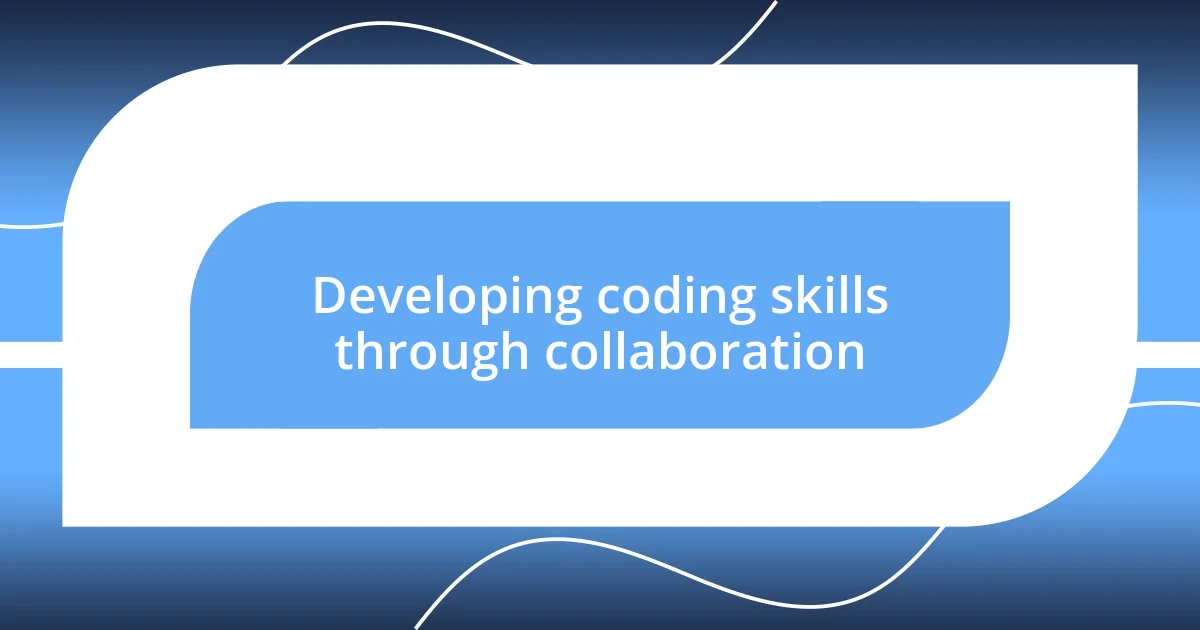
Developing coding skills through collaboration
Working alongside others in open source projects has truly been a game changer for my coding skills. I remember joining a project where I was paired with a senior developer for code reviews. Initially, I felt intimidated, but it turned into a treasure trove of learning. Each piece of feedback came rich with insights that refined my own coding style. It highlighted something I believe: collaboration can accelerate learning in unprecedented ways.
When working in teams, I discovered the value of shared knowledge and experience. Here’s what I’ve learned about developing coding skills through collaboration:
- Diverse Perspectives: Team members bring unique approaches to problem-solving, exposing you to new coding techniques.
- Real-Time Feedback: Instant critiques help you identify errors and improve your skill set rapidly.
- Mentorship Opportunities: Collaborating with more experienced developers can lead to invaluable mentorship and guidance.
- Enhanced Communication: Coding isn’t just about syntax; learning to articulate your thoughts effectively is crucial in a group setting.
- Responsibility: Working collaboratively instills a sense of accountability that drives you to write better, cleaner code.
Every collaboration I participated in helped to deepen my understanding and, quite frankly, made the process of learning enjoyable. There’s something rewarding about contributing to something larger than yourself while honing your skills.
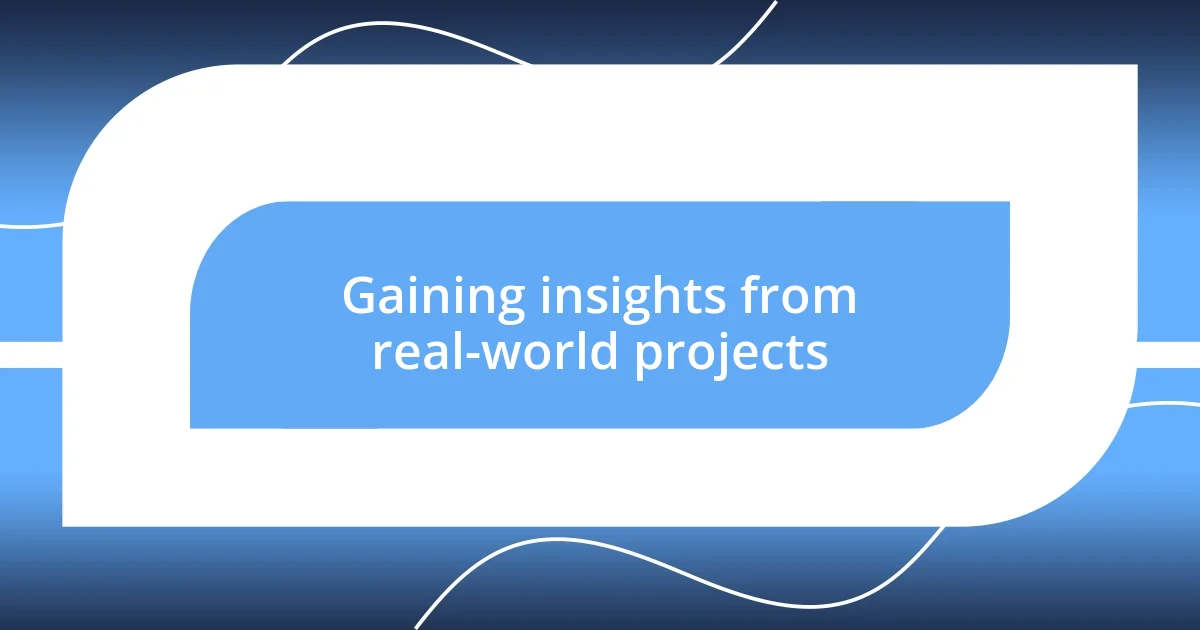
Gaining insights from real-world projects
Gaining insights from real-world projects has been an eye-opening experience for me. I remember one project where we were tasked with fixing bugs in a legacy system. Delving into this codebase was like uncovering a treasure trove of challenges and learning opportunities. Each bug I tackled and solved taught me something new about software architecture and the intricacies involved in maintaining older code. It was a humbling reminder of how past decisions affect future progress.
Participating in diverse projects has also allowed me to witness firsthand the various approaches teams take toward problem-solving. I joined a project that employed Agile methodologies, letting us adapt quickly to changes. The daily stand-ups were a revelation! Not only did they foster accountability, but they also allowed me to witness how open communication drives project momentum. Engaging in those discussions helped me understand the value of clarity and shared goals, which I’ve carried into every project I’ve worked on since.
Overall, these experiences have molded my perspective on software development. I often reflect on a project where our team needed to pivot directions based on user feedback. This taught me the importance of flexibility and responsiveness in tech. Have you ever faced a moment where adapting to change taught you something invaluable? For me, it was realizing that the user’s voice should always guide our technical decisions.
| Insight | Personal Experience |
|---|---|
| Codebase Exploration | Uncovered new challenges while fixing bugs in a legacy system. |
| Agile Methodologies | Participated in daily stand-ups enhancing accountability and communication. |
| Flexibility from User Feedback | Learned to adapt project direction based on real user input. |
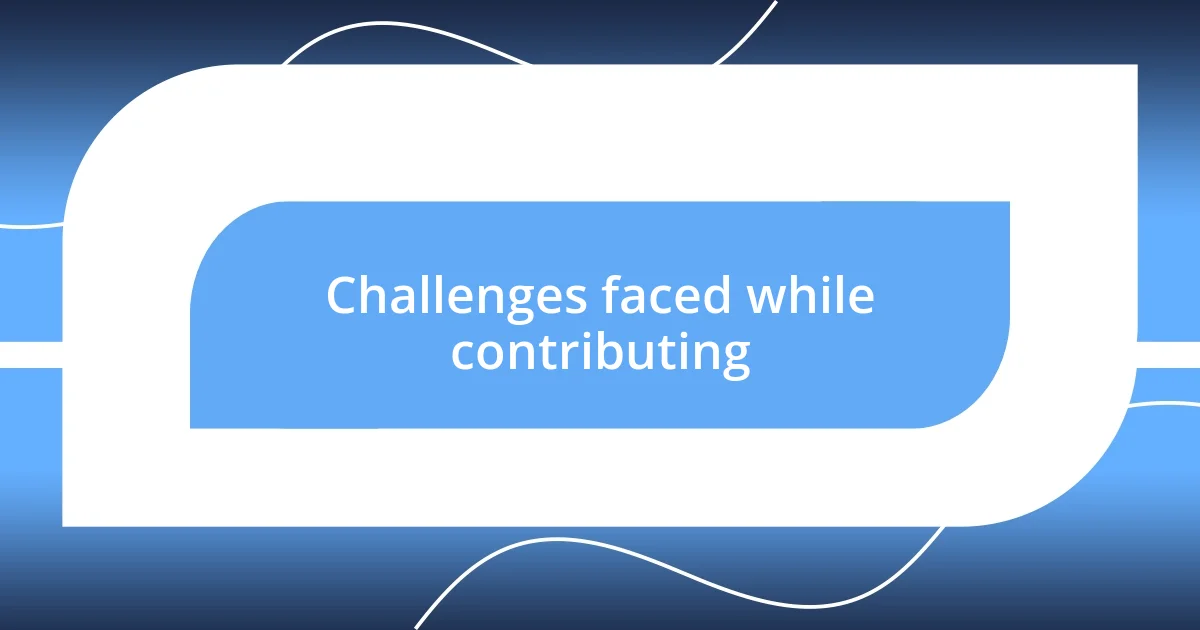
Challenges faced while contributing
Contributing to open source has its fair share of challenges that can sometimes feel overwhelming. I recall a particularly tough moment on a project where unclear documentation made it difficult to navigate the codebase. It was frustrating to spend hours figuring out how things worked without any guidance. Have you faced a similar situation? I learned that investing time in communication with the project maintainers can alleviate some of that confusion.
Another hurdle was dealing with varying coding standards among contributors. I remember submitting my code and getting feedback about style inconsistencies that I hadn’t noticed. It made me realize how crucial it is to be adaptable and open to different ways of writing code. How do you handle differing opinions in collaborative environments? For me, embracing these differences has been a vital part of my growth, turning frustrations into learning opportunities.
Then there’s the occasional imposter syndrome that creeps in especially when interacting with seasoned developers. In one project, I felt like my contributions weren’t significant enough compared to others. It took some self-reflection to recognize that every contribution counts. Learning to combat that negative inner dialogue has led me to appreciate my unique insights and experiences. What has helped you refocus during moments of doubt? Finding my own voice within the community reminded me that every perspective adds value, no matter how small it seems.









